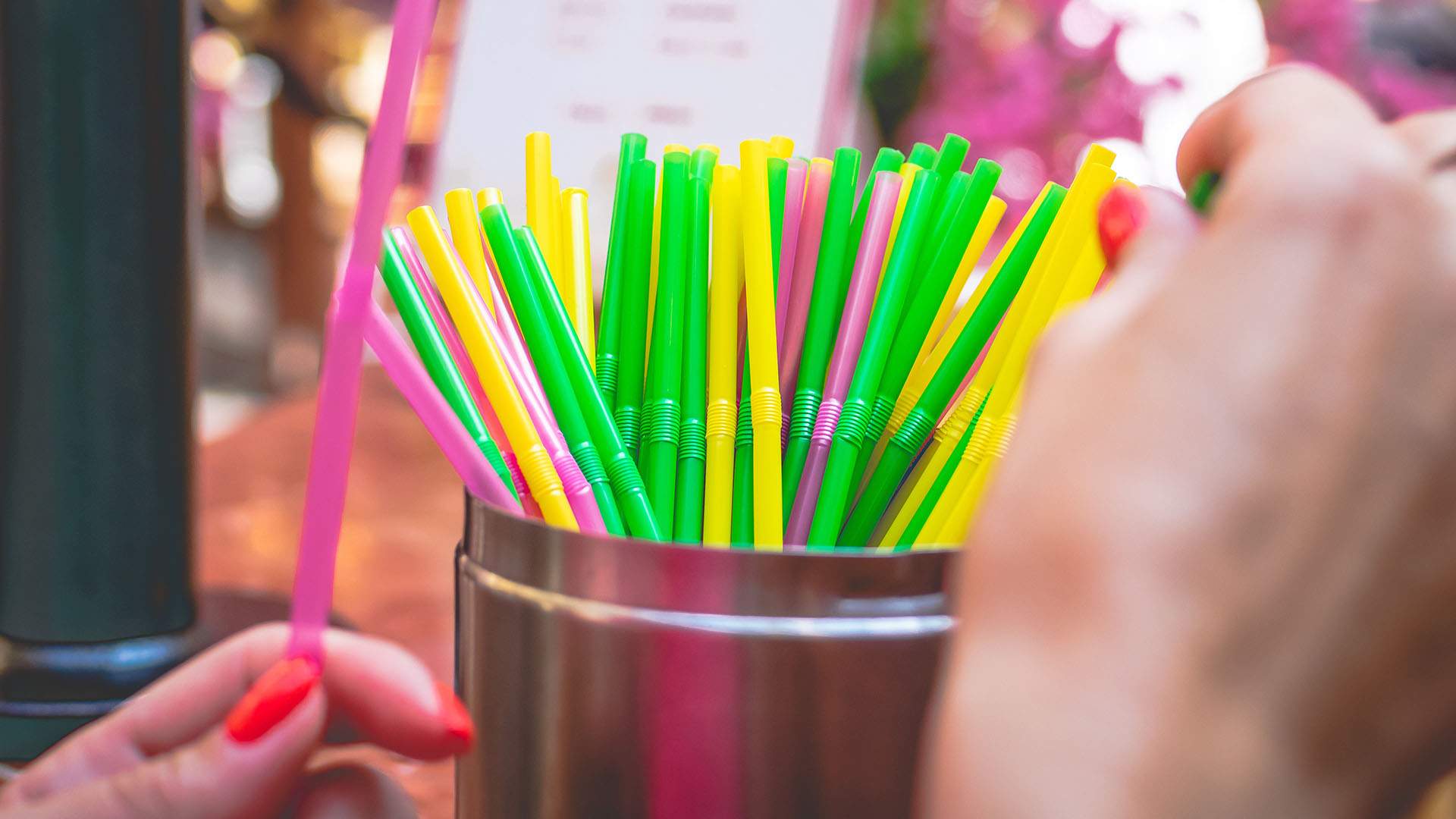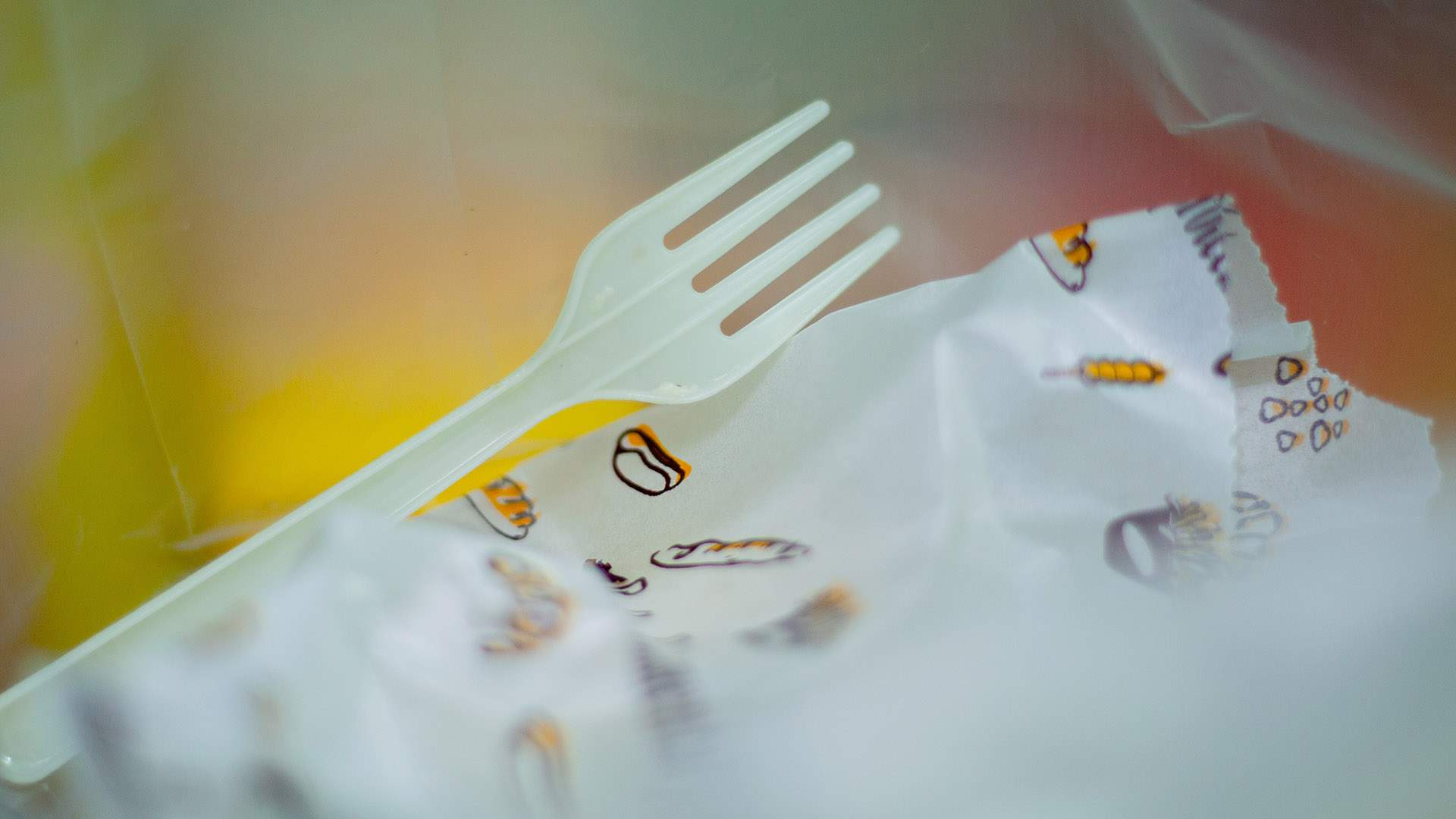Queensland's Statewide Ban on Single-Use Plastics Is Now in Effect
You're no longer able to buy single-use straws, stirrers, cutlery and plates, or polystyrene foam food containers and cups.
Queensland has ramped up its war on waste again, with a range of single-use plastic and polystyrene items now banned in the Sunshine State. After introducing a container refund scheme and scrapping disposable plastic bags, Queensland first proposed ditching single-use plastics in 2019, then floated it by the community in 2020. Legislation cementing the ban passed Queensland Parliament back in March, and now today, Wednesday, September 1, the law has just kicked in.
Gone from shelves — and from use in general — now that spring is here: plastic straws, cutlery, plates, bowls and stirrers, as well as polystyrene foam food containers and cups. They've all been ditched under the Waste Reduction and Recycling (Plastic Items) Amendment Act 2020, with fines now in place for businesses who supply them.
Wondering about the nitty gritty? When it comes to straws, the ban covers regular plastic straws, flexible straws, straws with a scoop, cocktail straws and bubble tea straws. The ban on stirrers spans hot and cold drink stirrers, swizzle sticks, and hot and cold food stirrers — and, in regards to cutlery, you won't be using plastic knives, forks, spoons, teaspoons, sample tasting spoons, soup spoons, chopsticks, splayds and sporks. The plates and bowls part is self-explanatory, as is scrapping polystyrene takeaway food containers and cups.
Crucial to the ban is the existence of already-available alternatives. In some cases, you can use reusable items instead — with cutlery and plates, for instance. In other cases, there are 100-percent compostable options, as seen with paper straws and stirrers.
That said, for people with disability, some alternative products to plastic — such as bamboo, paper and metal straws — aren't always a viable option. Accordingly, the legislation includes exemptions for people with disability, or with other relevant healthcare needs, who require access to one of the banned single-use plastic items. Some businesses are exempt from the ban so that they can supply single-use plastic products for healthcare needs and to people with disability, including hospitals, medical and dental clinics, pharmacies and aged care facilities.

When the legislation passed, Minister for the Environment and the Great Barrier Reef and Minister for Science and Youth Affairs Meaghan Scanlon advised that the move had widespread support across Queensland. "During our community consultation stage, from March last year, some 94 percent of the 20,000 respondents supported our proposal to ban these items. In addition, our latest online survey, which concluded on January 15, also supported the inclusion in the ban of expanded polystyrene products such as takeaway food containers and cups — with an overwhelming 98 percent of 6800 respondents in favour of removing them from our environment."
During the consultation phase, a number of other single-use items were identified by respondents, which may be covered by the ban at a later date. They could include coffee cups, plastic cups and heavy-weight plastic shopping bags, which were all identified by the Qld Government as potential targets when it first announced that it was investigating a single-use plastic ban.
Similar laws came into effect in South Australia earlier this year, while Victoria has set a 2023 deadline for implementing a single-use plastic ban as well — and, as a nation, Australia has floated banning all non-recyclable packaging by 2025. That's all on top of smaller-scale initiatives, not only including bag bans and container schemes, but the phasing out of single-use plastics in various guises at the company level, with Coles, McDonald's, IKEA, Coca-Cola Amatil and Qantas among those making steps in the plastic-free direction.
For more information about the Queensland Government's single-use plastics ban, head to the government's website.





